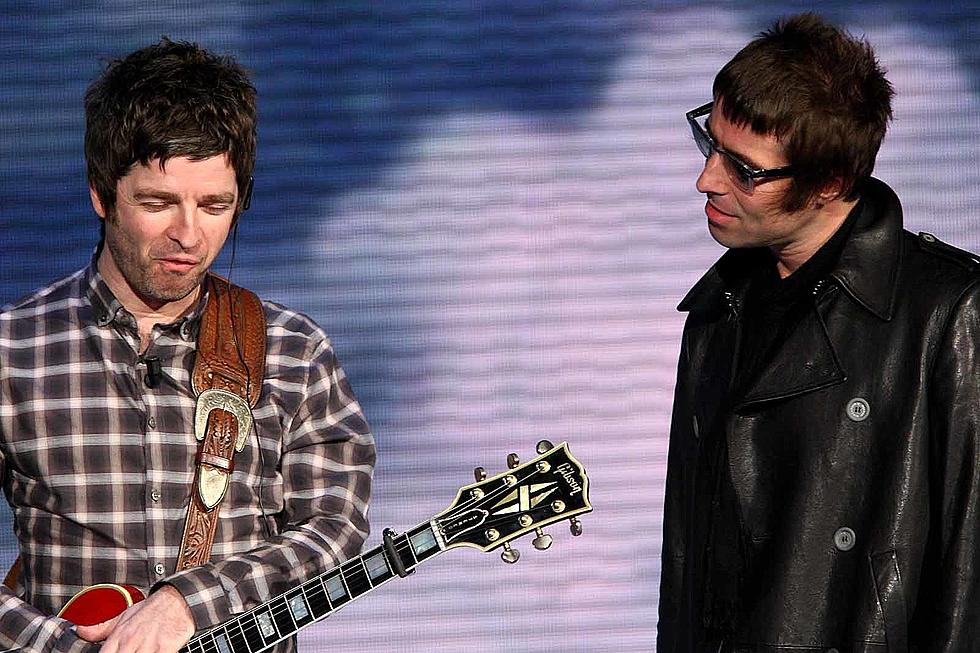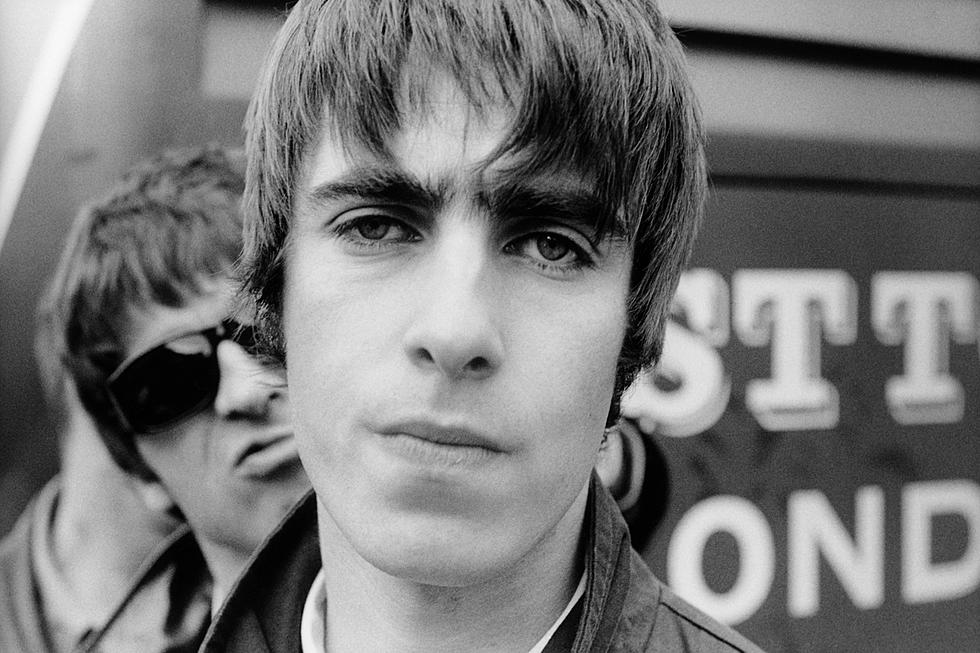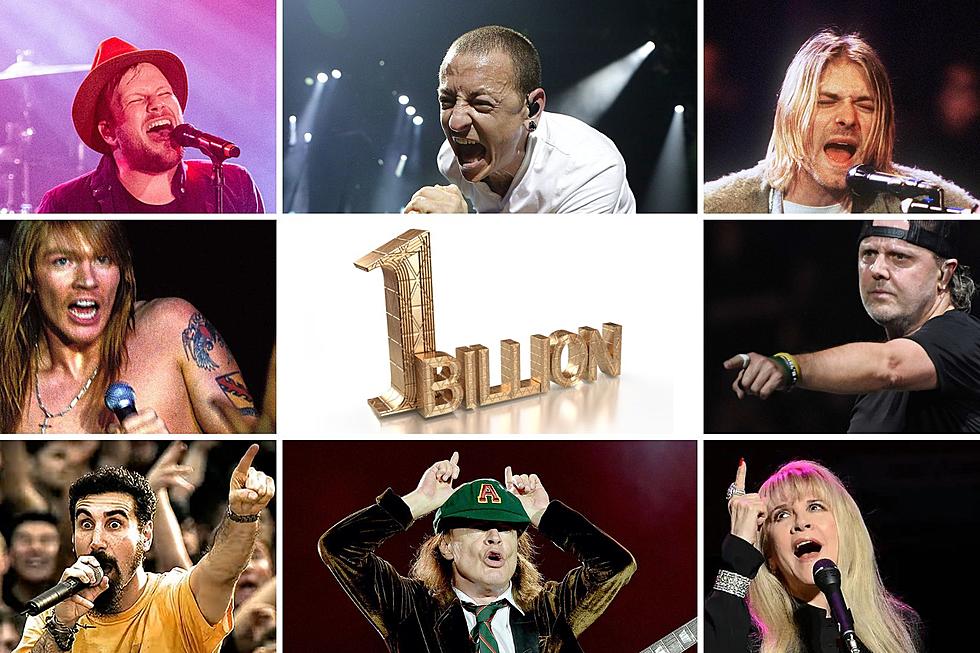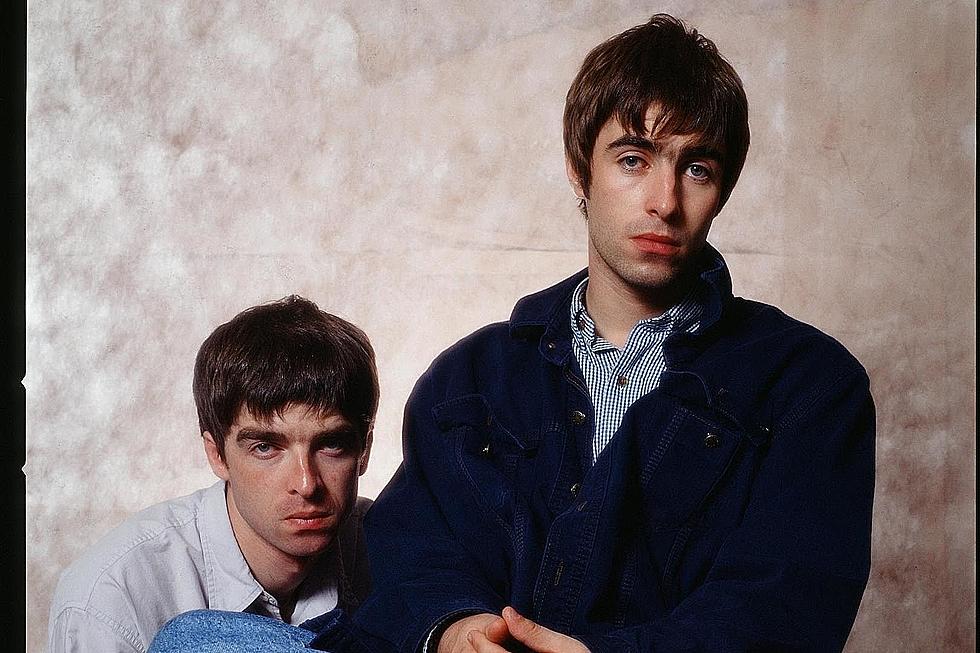
22 Years Ago: Blur Release the Britpop Battle Cry ‘Parklife’
If you're looking for Britpop's peak year creatively, look no further than 1994. Not only did Oasis take over the world with Definitely Maybe that summer, but Suede also dropped Dog Man Star that fall. But it all began on April 25 when Blur released their third and finest album, Parklife.
Pop music has always gotten a bad rap among the cognoscenti. But every generation gets at least one band that's allowed to walk the borderline separating, say, pop and punk, in the case of the Jam, or pop and grunge in the case of Nirvana, without taking a thrashing from the critics. These are the bands that are just too damned good to dismiss because the front man is pretty or the tunes are catchy, and when they come along it's magic.
In 1994, it was Blur's turn. At the time, the U.K.'s Independent called frontman Damon Albarn "the prettiest man in pop," the kind of dismissive phrase reserved for teen idols rather than the future mastermind behind Gorillaz. The band had been on the receiving end of some vicious poseur backlash after their shoegaze debut, 1991's Leisure, but had somewhat redeemed themselves critically with '93's Modern Life is Rubbish. For that album, Albarn moved the band more toward smart pop (the Kinks and the Faces are frequently cited as influences), a direction in which they continued for Parklife.
"Rock is the easy option," Albarn told the Independent in the same June '94 article. "You can write mediocre songs, mumble words, put a lot of attitude into it and be successful. But pop is so much more of an expose. If 'Girls and Boys' hadn't had something to say and the sounds that we used hadn't been thought through, it would have been embarrassing."
"Girls and Boys" of course, was the album's first single, released around six weeks prior to Parklife. Helmed by former Smiths producer Stephen Street, writer Albarn captured the shallowness of hookup culture. The band even used the artwork from a condom package as the single's cover.
Although the track didn't quite crossover into the pop world in the U.S., where it stalled at #59, "Girls and Boys" went to the Top 5 in England. But the track was a monster on alternative radio everywhere, hitting No. 4 on Billboard's Modern Rock Tracks chart. Not only did the song parody hookup culture, but it captured the early '90s bisexual zeitgeist with its infectious chorus of "Girls who are boys who like boys to be girls / Who do boys like they're girls who do girls like they're boys."
They were far from alone: That same year R.E.M.'s Monster contained the track "King of Comedy," wherein Michael Stipe sings "I'm straight, I'm queer, I'm bi," and in '93 Living Colour included the song "Bi" on their album Stain. These weren't protest songs demanding new sexual freedoms -- they were pop songs reflecting what was going on in the bands' audiences (if not the bands themselves). Music certainly can function as an agent of change, but often it works as a milestone that marks when things have changed.
This is Parklife's great legacy: It is a snow globe that captures what it was like to be young in London circa '94. In fact, the band's label wanted to name the album London, but the tittle Parklife prevailed and with it that great cover photo of a day out at the dog track. Inside waited 16 tracks of British goodness, which may explain why the album did so well in the U.K. as opposed to its rather cool U.S. reception: We simply didn't have the frames of reference necessary to crawl inside of that particular snow globe. That didn't stop the album from selling five million copies worldwide, however.
What Parklife accomplished in America was to set the stage for the great Britpop invasion of the '90s. Albarn and company made it cool to like pop music again in the same way that Sturgill Simpson is turning the tide for country music. When Oasis dropped Definitely Maybe at the end of '94, the Britpop wave went into hyperdrive.
The following year, both Blur and Oasis were back with even bigger albums, and the now infamous Battle of Britpop was on. In '98 Albarn went on to form Gorillaz, completely reinventing not only his persona but his music, and once again proved that pop can be smart, edgy and brilliant.
Worst to First: Every Blur Album Ranked
More From The Moose 94.7 FM










